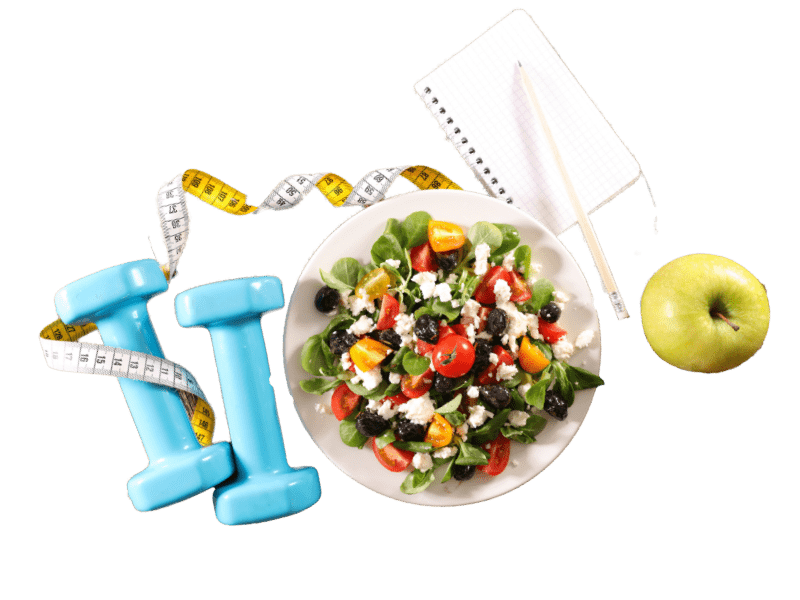
Immune Support
One of the most empowering things you can do when so much feels out of your control is to manage your health by taking charge of your diet.
Your immune system is the most powerful weapon you have against disease. Strong immunity means the body can better fight off viruses and germs.
Here are 10 easy health tips for improving your immune system:
Eat real food
Your body needs real, unprocessed food to stay healthy, not the processed foods you kid yourself are OK to eat. Focus on eating natural, unrefined, unprocessed food as much as you can and cut out (or at least cut back on) sugar.
That means focusing on meat, fish, eggs, and vegetarian sources of protein like tofu, beans, lentils, chickpeas, nuts, and seeds, plus a broad range of fruits and vegetables. Follow the 80/20 rule (to avoid doubt, this means eating healthily 80% of the time—think fresh apples rather than apple juice or wholegrain bread instead of white bread).
Include more 'happy tummy' foods
Did you know that up to 80% of your immunity to germs and disease is in your digestive system? The mucosa-associated lymphoid tissue (MALT) in the gut is part of the first line of immune defence, so getting the right balance between beneficial or ‘good’ gut bacteria and the ‘bad’ or potentially pathogenic bacteria is critical.
The gut environment takes a beating year after year, owing to poor diets, too much sugar, stress, antibiotics and other factors. Even if you have no apparent tummy troubles, digestive health is vital, so it’s worth the extra effort to take care of it. Add probiotic and prebiotic foods to your diet, as these re-populate the gut with good bacteria and feed them well enough to crowd out harmful bacteria.
Enjoy more organic, probiotic, natural yoghurt—sometimes called ‘live’ yoghurt. Always buy full-fat yoghurt, as the 0% or no-fat options have increased levels of milk sugars—and fat isn’t the enemy, either in life or in weight loss. Oats, onions, garlic, Jerusalem artichokes, green bananas, beans, and cooked, then cooled potatoes all benefit the gut.
Make chicken soup
You’d be wrong if you thought it was just an old wives’ tale. Research suggests that a bowl of chicken and vegetable soup can slow the speed at which neutrophils move around your body.
Neutrophils are a type of white blood cell and part of the immune system, protecting the body from infection. When neutrophils move slowly, they are more likely to become concentrated in the areas of the body that need the most healing. Studies have shown chicken soup to be particularly helpful in reducing symptoms of upper respiratory system infections.
Cook with herbs and spices
Adding flavour to food is a smart way to include delicious immune superfoods on your plate. Garlic is a potent superfood. It is antimicrobial, thanks to the active ingredient allicin, which helps fight viruses. It has been used for thousands of years to boost the immune system and prevent sickness. To make the most of allicin, crush, chop, or grate the garlic cloves and allow them to sit for a few minutes. This releases more allicin. Once formed, it is fairly resistant to heat.
Most culinary herbs contain anti-inflammatory properties due to their phytonutrients, but oregano and thyme are particularly rich. Spice up your cooking with turmeric and ginger, as these are well-documented immune boosters.
Say no to sugar
Even if you don’t consider yourself a sugar addict, it’s worth taking a look at how much you do consume – and trying to swap sugary treats for something more wholesome.
Sugar fans the flames of inflammation and affects the ability of white blood cells to fend off
viruses and bacteria. In fact, the immune system stays depressed for hours after consuming sugar, according to recent studies. Enjoy raw cocoa or cacao hot chocolate on chilly evenings, adding your favourite milk or milk substitutes (with a bit of xylitol or stevia to sweeten, if you like). If you really miss that chocolate hit, try a few squares of pure, dark chocolate with a higher cocoa content (at least 75%).
Drink more water
Staying well-hydrated is essential for health in general. When it comes to bolstering your defences, water is a miracle worker.
It flushes germs from your system, helps your blood carry plenty of oxygen to your body’s cells, and allows those cells to absorb essential nutrients. Invest in a filter jug or bottle to avoid quaffing high levels of chlorine and fluorine along with your tap water.
Consider tea
Green tea (and chamomile tea, if you’re interested) can help supercharge your immunity. That’s because they contain antioxidants that help battle free radicals that wreak havoc across the immune system. In truth, we don’t know how significant the effect is on the immune system, but let’s say the impact is there, and every little bit helps.
Enjoy sunshine
As difficult as this is to achieve sometimes (particularly in winter and spring), spending sufficient time in sunlight is vital for the immune system. Your skin absorbs sunlight, which makes vitamin D, so planning an hour or two outside during daylight hours is a good reason to leave work early or take your children to the park when you’d rather sleep late.
Even sitting outside while you have your morning cuppa is a good thing right now. Expose as much of your bare skin to the sun as possible, and don’t wear sunscreen during that time either, as it inhibits the process. You can boost your vitamin D levels by eating more of the following foods: oily fish (salmon, mackerel and fresh tuna), beef liver, mushrooms, cheese, egg yolks and vitamin D-fortified foods, such as dairy products and orange juice.
Get enough sleep
Being tired is not good for your health. Your body needs rest to stay healthy. One study done at a private research university in Pennsylvania, US, found that even if people said they felt fine and dandy, if they’d had less than 7 hours of sleep a night, they were three times more likely to catch a cold than people who had had an average of 8 hours or more of shut-eye.
Move in a way that feels good
Your lymphatic system, a parallel universe to your bloodstream, contains a network of tissues and organs that help your body eliminate toxins and waste. Its primary role is to transport a fluid called lymph around the body, which contains infection-fighting white blood cells. Unlike the blood, which moves around thanks to your heart pumping, there’s no automatic way of moving lymph.
Moving yourself is the only way to shift the stuff from A to B. A recent study from a university in North Carolina in the US showed that people who move for five or more days a week experience 43% fewer days with upper respiratory infections (that’s throat, sinuses, and/or lungs—basically the common cold). The aim is 30-60 minutes of exercise five times a week.
You might also like:Blogpost: Stress and Your Hormones
Cortisol, often called the “stress hormone,” plays a vital role in the body’s stress response. When stressed, the adrenal glands release cortisol, preparing the body for the “fight or flight” response. While cortisol is crucial for survival, chronic stress can lead to an imbalance in the hormonal system, affecting the production of other vital hormones.
Read more…

LET’S CONNECT

Take your first ‘Executive’ step towards a healthier, balanced YOU.
